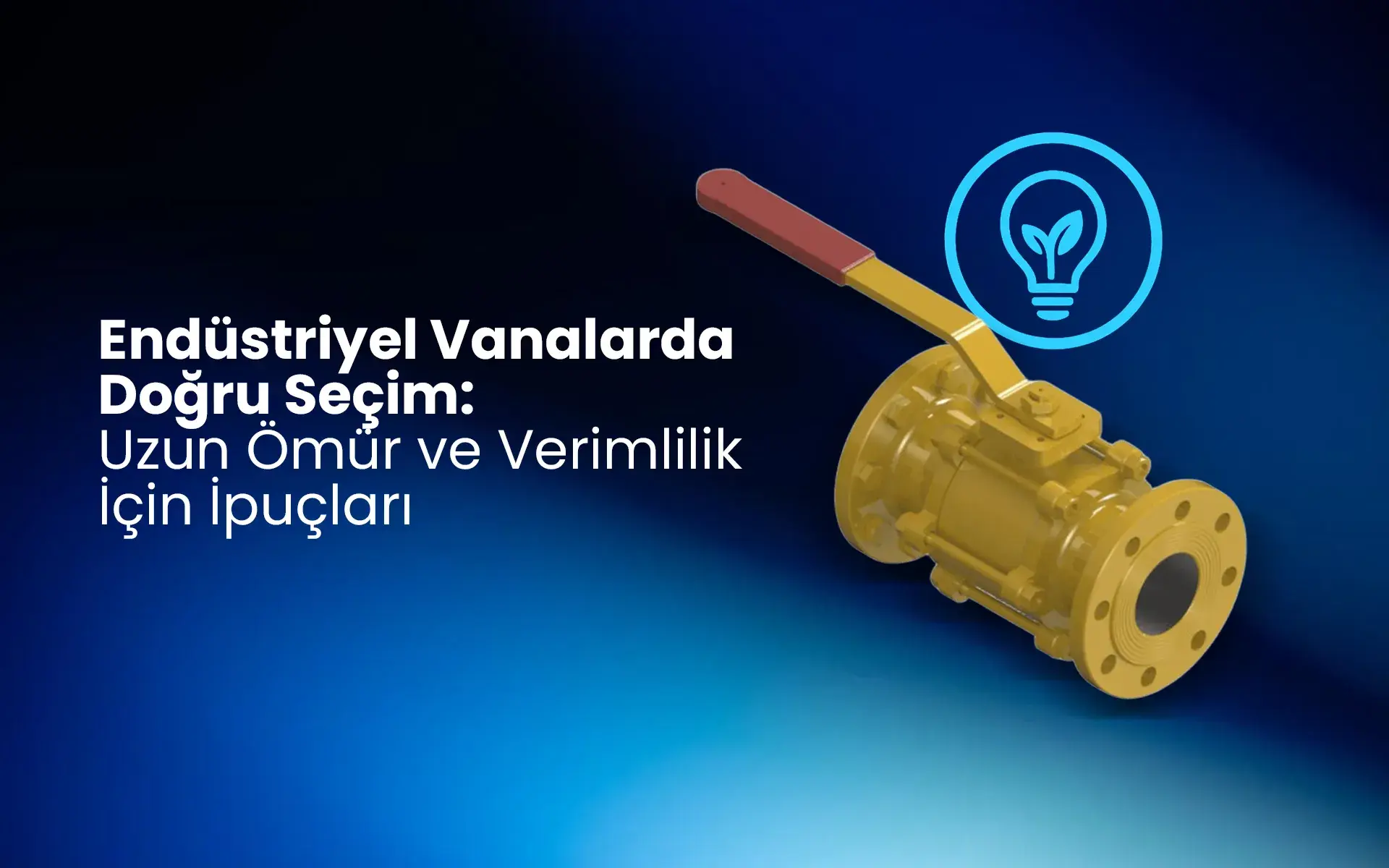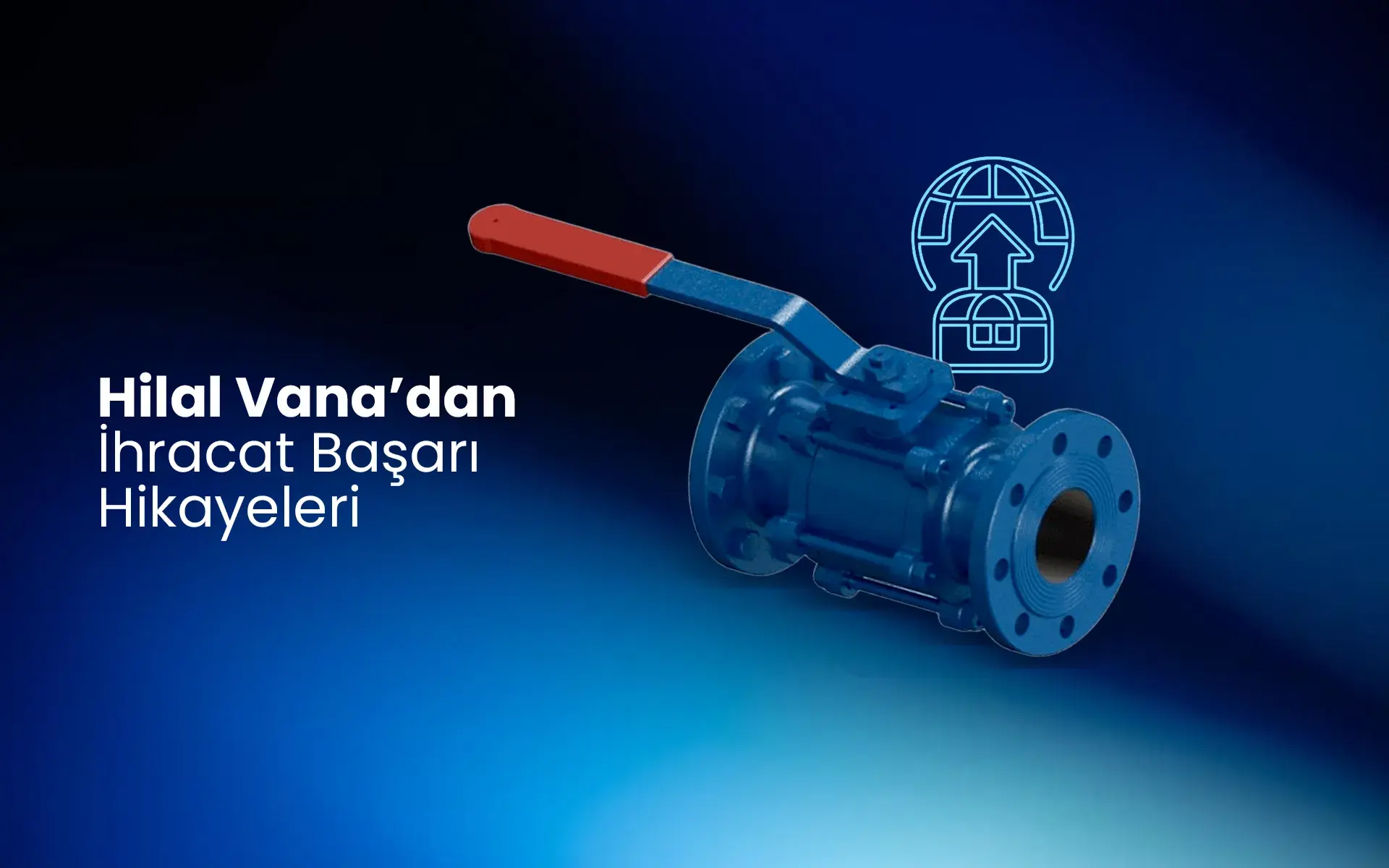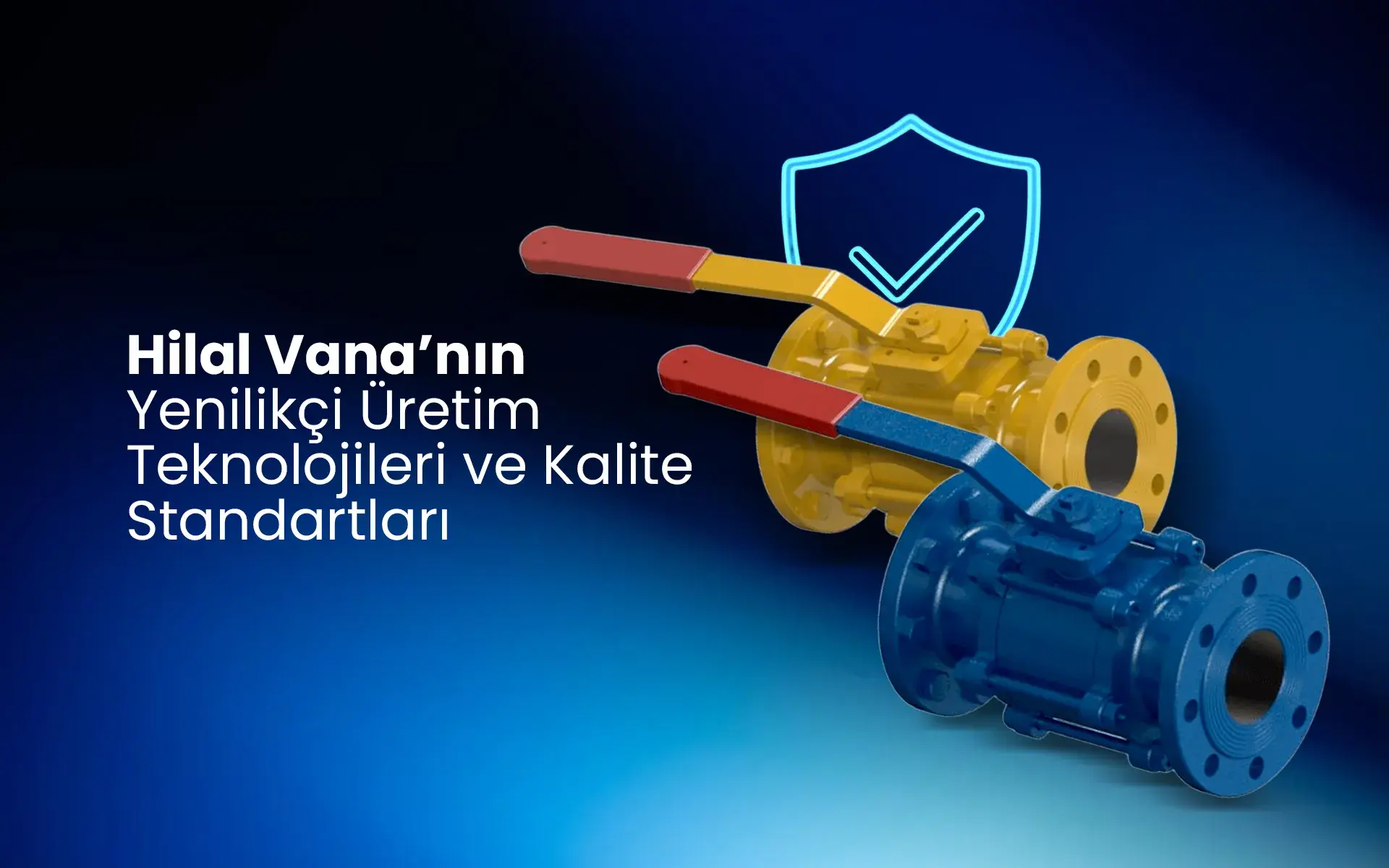
Correct Selection in Industrial Valves: Tips for Longevity and Efficiency
Correct Selection in Industrial Valves: Tips for Long Life and Efficiency
In industrial facilities, valve selection is not merely an equipment choice; it is a critical decision in terms of production efficiency, safety, cost optimization, and maintenance continuity. An improperly selected valve can lead to sealing problems, sudden failures, efficiency losses, and high maintenance costs. Therefore, considering technical specifications, operating conditions, and the type of fluid involved is the fundamental step for long-lasting and trouble-free use.
The first factor to evaluate when selecting a valve is the operating environment and the characteristics of the fluid. Water, steam, natural gas, chemicals, or high-viscosity liquids each require different material, coating, and sealing properties. For instance, in systems where chemical resistance is essential, stainless steel valves are preferred, whereas for applications operating under high temperature and pressure, heat-resistant products with superior sealing quality are necessary. Hilal Vana’s extensive product portfolio provides tailored solutions for industries ranging from food production and agricultural irrigation to natural gas pipelines and cement plants.
Another key criterion is pressure and temperature ratings. The valve must comply with the system’s maximum operating pressure and temperature ranges. Otherwise, material fatigue, deformation, or cracking will inevitably occur. PN classification serves as a crucial reference point here. For example, a PN 16 valve can operate safely up to its rated working pressure. Using valves with the correct PN rating not only enhances system safety but also reduces maintenance costs in the long run.
Choosing the correct valve type is also a decisive stage in the selection process. Ball valves are ideal for systems requiring fast shut-off and complete tightness, while butterfly valves stand out with their lightweight body and suitability for large diameters. Gate valves are recommended for large lines where the flow must be fully stopped or redirected, and check valves ensure system safety by preventing reverse flow. Hilal Vana’s product designs address all these diverse requirements.
Finally, ease of maintenance and spare part availability should not be overlooked for long-term efficiency. Modular valves with easily accessible spare parts can be put back into service with minimal downtime in case of failure. Hilal Vana provides not only products but also sustainable solutions through after-sales technical support and spare parts supply.
Correct valve selection ultimately ensures system safety, extended service life, energy efficiency, and reduced maintenance costs. For this reason, obtaining engineering support from the project stage, analyzing technical data, and working with an experienced manufacturer is the most effective way to protect investments. With its expert consultancy and high-quality products, Hilal Vana stands as the most reliable partner in this process.
Quality Control Stages in Hilal Vana’s Production Process
The production of industrial valves is a process that requires high precision and engineering expertise. At Hilal Vana, our mission is not only to deliver products but also to provide trust, durability, and long-lasting solutions. In line with this approach, every stage of our production process is subject to rigorous quality control procedures. Quality assurance is effectively applied from product design through to delivery to the end user.
1. Material Selection and Procurement Control
Quality begins with the right choice of materials. At Hilal Vana, all products are manufactured from certified raw materials that meet technical requirements and usage conditions. Materials such as steel, stainless steel, cast iron, brass, or carbon steel are sourced in compliance with international standards (ISO, EN, API, etc.). During procurement, each material undergoes tests such as chemical composition analysis, mechanical strength tests, and hardness measurements.
2. Precision Manufacturing and CNC Machining
Valve bodies, stems, discs, balls, and other components are processed using high-precision CNC machines. At this stage, tolerance values are strictly verified against technical drawings to ensure 100% compliance. By using advanced manufacturing technologies, Hilal Vana minimizes the margin of error and ensures each part is ready for assembly.
3. Pre-Assembly Component Inspection
Every component is carefully inspected before reaching the assembly line. Dimensional checks, surface roughness inspections, and visual examinations are conducted. Sealing elements (O-rings, gaskets, PTFE seats, etc.) are tested for elasticity and surface quality.
4. Assembly Process and In-Process Inspections
Assembly is carried out by trained technicians. Intermediate inspections are performed at each stage to ensure that all components are properly installed and fastening torque values are within specification. This guarantees the mechanical reliability of the final product.
5. Pressure and Leakage Tests
One of the most critical stages in Hilal Vana’s quality control process is pressure testing. Products are tested above their rated operating pressure to ensure no leakage occurs. Hydrostatic tests, air pressure tests, and functional tests are conducted in compliance with international standards.
6. Surface Coating and Corrosion Protection
Products undergo surface coating treatments suitable for their intended application. Epoxy coating, galvanizing, or stainless surface treatments are applied to increase corrosion resistance and extend product life. Post-coating thickness and adhesion tests are also carried out.
7. Final Inspection and Certification
Every valve leaving the production line undergoes final inspection by our quality control team. Visual checks, label verification, serial numbers, and documentation are reviewed. Only products that successfully pass all tests are packaged and prepared for shipment.
8. Customer Feedback and Continuous Improvement
Hilal Vana closely monitors the performance of its delivered products. Customer feedback is integrated into the quality management system, ensuring continuous improvement of production processes.
Hilal Vana’s quality control system extends beyond the production stage and continues throughout the entire life cycle of the product. In this way, we deliver solutions that meet not only today’s requirements but also the future standards of the industry.





